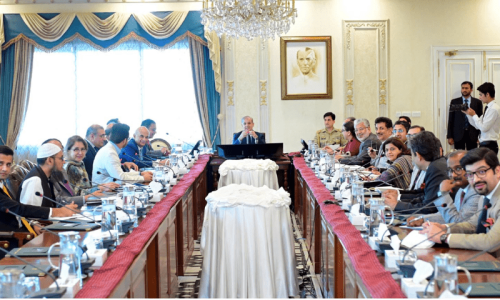SANAA: Al Qaeda’s Yemen affiliate on Friday threatened to strike back at any party involved in the US drone campaign, which has killed scores of jihadists ahead of a government ground offensive.
The warning from senior Al Qaeda in the Arabian Peninsula leader Qassem al-Rimi came in a video posted online.
He accused Yemeni security forces of placing tracking devices on vehicles to help US drones target them, warning his group would attack “any establishment, ministry, camp or barracks” involved in the tactic.
He also said it would go after anyone “acting as an intermediary with the Americans”. “For us, all such establishments are legitimate targets. We won’t wait for them to come to us — we will go to them,” he said.
Rimi said his group had “a long list of those implicated in such operations... who will pay the price”.
The United States frequently launches drone strikes on fighters from AQAP, which has been linked to scores of botched or thwarted terror attacks on the US homeland.
Both the White House and Yemeni President Abdrabuh Mansur Hadi have defended the drone programme in the face of complaints by human rights groups concerned over civilian casualties.
AQAP has launched a series of spectacular raids in recent months, including targeting an army headquarters in the southern port of Aden in April in an attack that killed 20 people.
The group said it attacked the intelligence complex because of its role in coordinating US drone attacks.
The army launched an offensive on Tuesday against AQAP hideouts, mainly in the south where the militants are strongly rooted.
Soldiers backed by warplanes on Friday killed five suspected Al Qaeda militants in Shabwa province in southern Yemen, state news agency Saba reported.
It said dozens of militants were wounded and three of their vehicles destroyed, including one loaded with an anti-aircraft rocket launcher.
A total of 27 suspected Al Qaeda fighters and 24 soldiers have been killed since the operation was mounted, according to security and medical sources.
The latest campaign by government forces comes 10 days after a wave of drone and other air attacks on Al Qaeda bases and training camps killed around 60 militants.
The jihadist group denounced the offensive as a “premeditated military escalation” that came after “the Yemeni defence minister visited Washington to receive the orders of his American masters”.
AQAP — a merger of the network’s Yemeni and Saudi branches — also denied President Hadi’s allegations that 70 per cent of the fighters are foreigners.
“It is a lie,” it said, stressing that the “majority of mujahedeen” fighting in AQAP ranks are Yemeni.
The jihadists took advantage of a 2011 uprising that forced veteran strongman Ali Abdullah Saleh from power to seize large swathes of southern and eastern Yemen.
The army recaptured several major towns in 2012 but has struggled to reassert control in rural areas, despite backing from militia recruited among local tribes.—AFP













































Dear visitor, the comments section is undergoing an overhaul and will return soon.